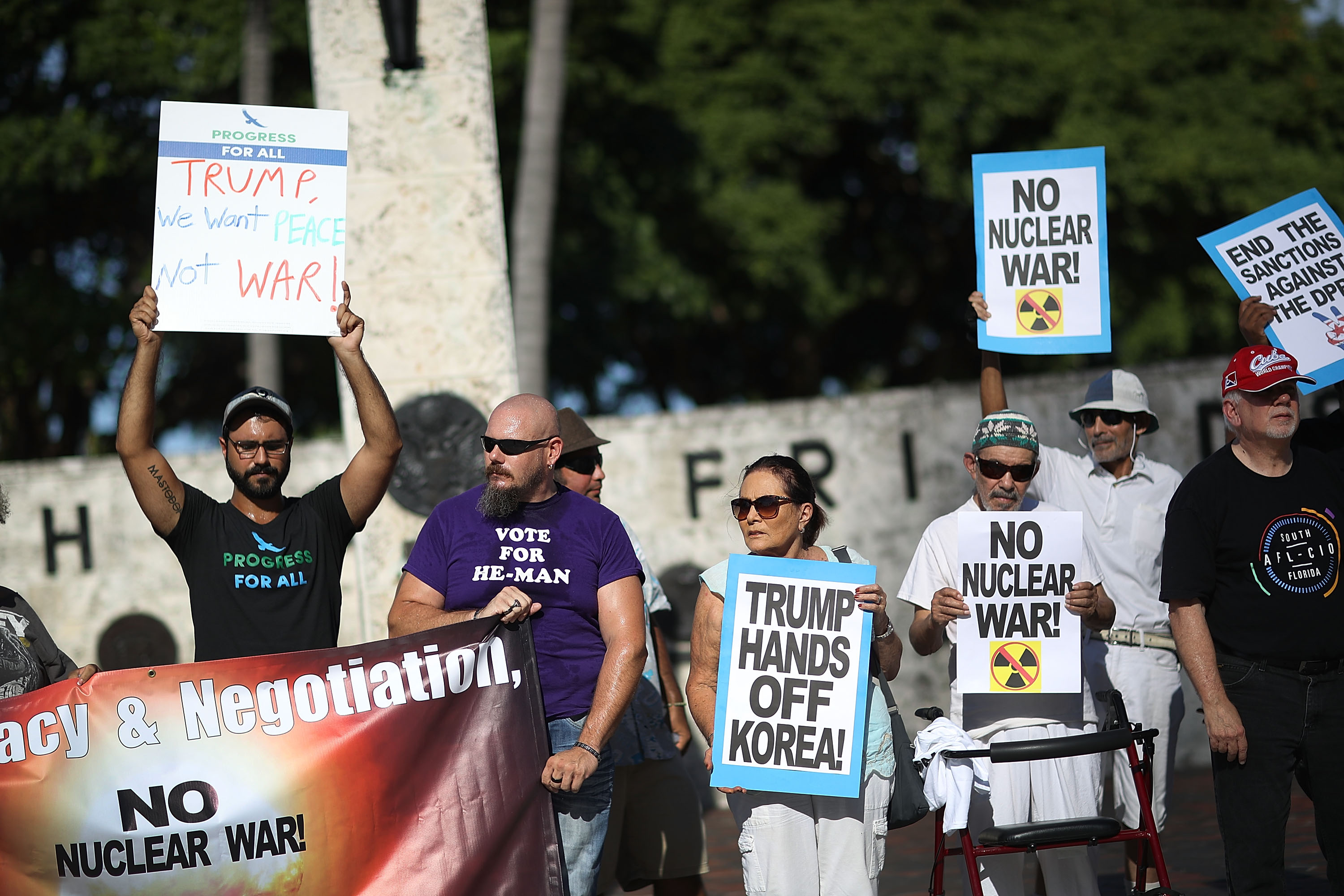Donald Trump’s bellicose rhetoric is going to end the rally in Asian assets, according to strategists at AllianceBernstein.
It may not happen right away -- in fact, there’s a good chance Trump’s increasingly ominous war of words with North Korea will blow over by the end of the month -- but U.S. foreign policy is likely to send Asian markets into a tailspin at some point during his presidency, strategists led by Michael Parker wrote in a note to clients Monday.
“Apocalyptic ranting at North Korea reflect a lack of judgment that Asian markets simply cannot weather indefinitely,” Parker wrote in the report, titled “The end of the Asia rally... Is the U.S. becoming a “Rogue State?” “Asian markets just do not have the resilience, or the risk-off asset portfolio, for three-and-a-half (or seven-and-a-half) more years of this.”
Given the staid language that typically accompanies compliance-obsessed Wall Street research, the warnings stand out. AllianceBernstein says the Trump administration is increasingly exhibiting the characteristics of a rogue state and risks disrupting the post-Cold War order that has turbo-charged cross-border trade and capital flows. In Asia, that would reverse a rally that sent a benchmark stock gauge to a record earlier this month.
Volatility gauges temporarily awakened from their slumber last week while risk-taking eased, after Trump’s fiery broad-swipes at the regime in Pyongyang. White House officials sought to tamp down on the nervousness over the weekend by saying war was far from imminent, spurring stock gains around the world at the market open on Monday.
Parker wrote that the U.S. could soon be viewed by international powers as “defiant, isolated, unable to engage constructively, aggressive.” That, they say, could lead to a fundamental shift in geopolitical alignments in Asia, and possibly Europe, that would upend global trade and isolate the U.S. should it threaten unilateral military action in the Korean peninsula.
While the analysts concede that comparing the U.S. to a rogue power is an exercise in rhetorical license, they have little doubt it will eventually have a sustained impact on markets. The MSCI Asia Ex-Japan Index is up 21 percent this year.
“There is perhaps only a 10 percent chance that Asia is unaffected by this new brand of U.S. diplomacy,” they wrote. “In our view, this is the ‘thing’ which we are all staring at that eventually ends the Asia rally.” – Bloomberg
